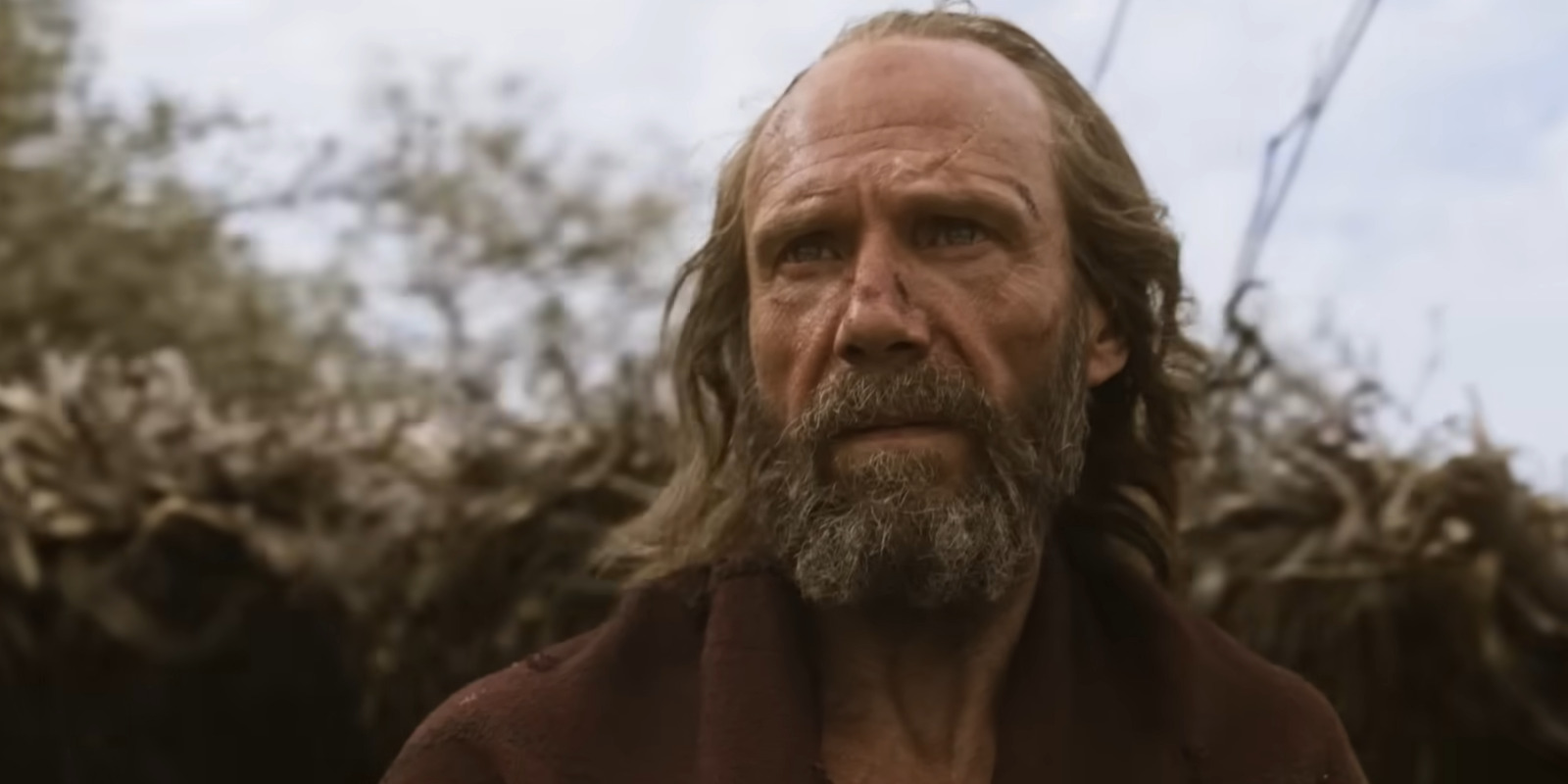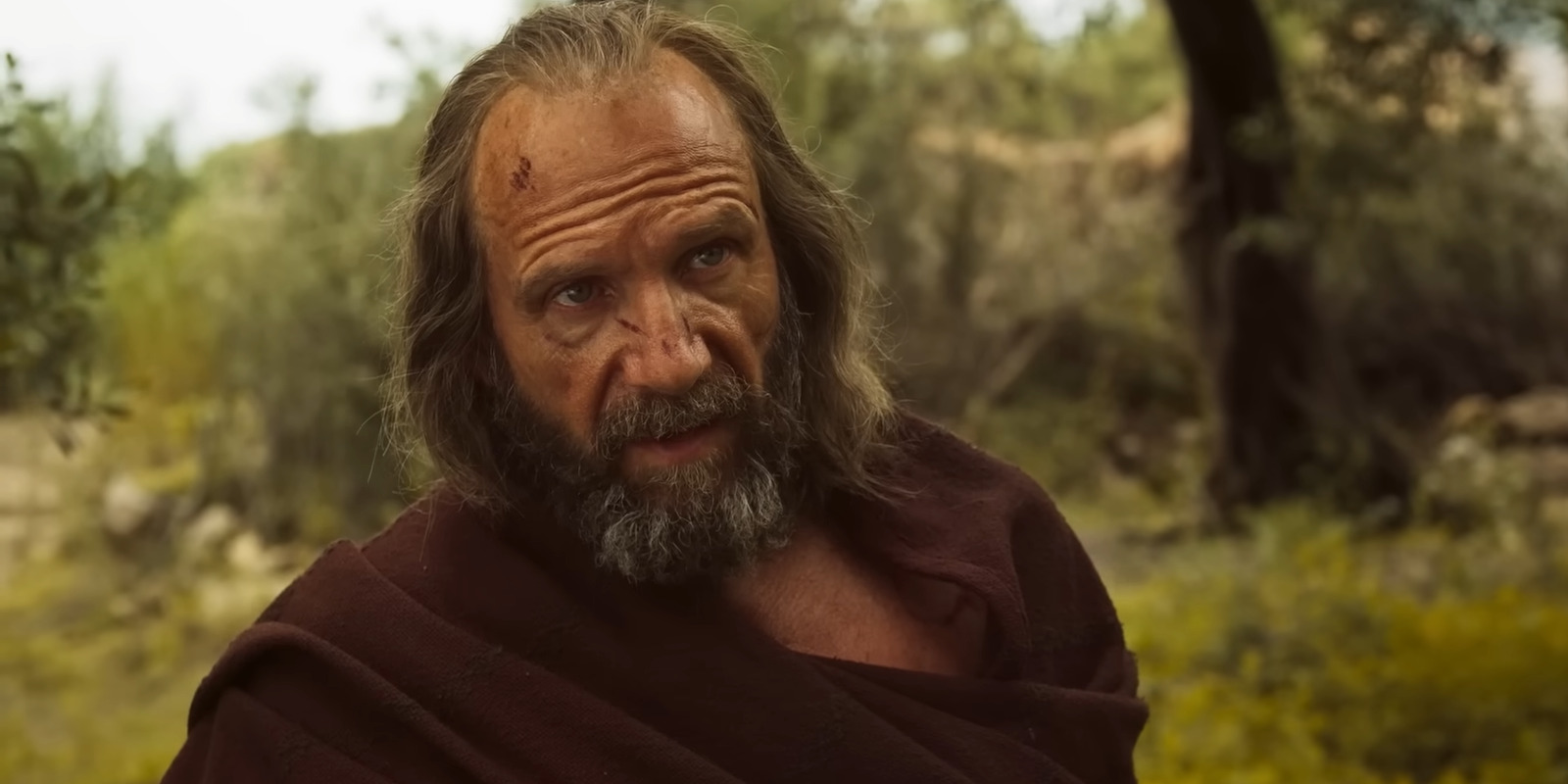The historical drama film ‘The Return’ charts an earnest tale about a man whose drawn-out homecoming forces him to reckon with the transformational nature of his voyages. When Odysseus left his kingdom of Ithaca, he didn’t know he would be bound for a journey that would keep him from home for two decades. As a result, by the time he returns, his ventures have left him war-ravaged and torn. Worse yet, he discovers that in his absence, a court of suitors has moved into his palace, pushing for his wife, Penelope’s hand, and the throne that comes with it.
Consequently, as the danger continues mounting against his wife and son, Telemachus, the soldier has no choice but to pick his battles again. The Uberto Pasolini films provide a psychological exploration of Odysseus not as the revered and wise Greek hero who brought down the city of Troy but rather as a ramshackle man fighting for his family. In doing so, the narrative allows the protagonist a unique hero’s journey with an enthralling conclusion. SPOILERS AHEAD!
The Return Plot Synopsis
Penelope, her son, Telemachus, and the entire Ithacan kingdom have been waiting for the return of their King for years. As the years pass, others’ confidence in Odysseus dwindles, yet his wife continues holding out hope for a reunion. Yet, her son’s youth and her husband’s absence invite trouble from neighboring kingdoms, bringing a group of suitors to the palace’s doors. While it’s evident that the others are only here for the throne, Antinous stands apart as the only one after Penelope’s heart. Still, he’s no less forceful in his ambition and remains an unwelcomed guest in the Queen’s palace.

On her part, Penelope keeps the suitors at bay with excuses and a trick. She insists that she’ll choose a husband among the men, but only after she finishes weaving a shroud for her aging father-in-law, Laertes. Unbeknownst to Antinous and the others, she unravels her weaving every night to sustain the never-ending cycle of her rouse. Meanwhile, her son, Telemachus, remains trapped by his mother’s side as a perpetual target remains on his back. Around two decades after the King’s departure, Odysseus washes up on the shores of Ithaca, taken in by Eumaes, the pig-herder.
Even as Odysseus comes to consciousness and becomes a guest at the unwitting Eumaes’ hut, he keeps his true identity a secret. Even after learning of his family’s predicament and Ithaca’s ailing without its King, the soldier remains quiet and unmoving. Instead, he only shares the story of his presence at Troy during the war. Back in the palace, Telemachus grows antsier in his situation and decides to flee on a short adventure to nearby shores after a row with his mother. In this time, Laertes ends up passing away, further worsening Penelope’s situation. Still, the Queen bides some time under the cover of grief and amends that the cloth she is weaving will serve as her wedding cloak.

As Odysseus hears of his wife’s aggravated situation, he decides to visit the palace disguised as a veteran soldier and a beggar. Nonetheless, he calls attention to himself after the suitors try to pick a fight with him for entertainment. This compels Penelope to take notice of him as well, leading to a private conversation. Penelope demands to know the reason her husband has been away for so long and if the stories of savagery are real. In turn, Odysseus can only speak of his fear of returning home in the face of everything that he has experienced. As a result, the Queen can only return to her life, while the King withdraws to his anonymity as Antinous and the others continue to threaten everything he once held dear.
The Return Ending: Why is Odysseus Scared of Returning to His Family?
Odysseus’ departure from Ithaca remains the central conflict throughout the story, directly feeding into the complications of the narratives of other characters. His decades-long absence has cornered Penelope into a dreadful situation where she must choose between a group of savage suitors or risk plunder and worse. Similarly, Prince Telemachus grows up in a politically tumultuous environment where his safety is tied to his mother’s standing. Should Penelope embrace the title of Odysseus’ widow rather than his wife, her son would lose all claims to the throne.

Lastly, the Ithacan kingdom and its people as a whole continue to suffer from a lack of prosperity and the added racketeering caused by a kingless throne. Consequently, it stands to reason that one would expect Odysseus’ return to fix these issues. Nonetheless, even after the man arrives on his homeland’s shores, he chooses to stay silent in the shadows. Since leaving home, Odysseus has been a part of a ten-year-long war that intrinsically changed who is was as a person. Additionally, the ten years after the war brought a series of lethal misadventures in which he lost all his men and their treasure.
Consequently, when Odysseus returns home, he has nothing but death and cruelty to show for himself. Worse yet, it becomes abundantly clear to him that he has also inadvertently hurt his family by pushing them into adverse circumstances due to his own ambitions. For the same reason, he’s reluctant to reveal his true identity and take his otherwise rightful place on the throne. Odysseus doesn’t believe he is worthy of the title and is undergoing a severe loss of self. Moreover, he’s scared that even though he has spent years running away from war, he never truly escaped it. Therefore, even when he’s home, he still feels trapped in his past, which prevents him from returning to his family.
How Does Penelope Get Rid of Antinous and the Others?
Shortly after Odysseus and Penelope’s disheartening encounter, Telemachus returns to Ithaca with stories of his own adventures, as well as the ones he hears of his father. As such, he’s compelled to reveal to his mother the rumors that he spent years with another woman on some island instead of returning to his family. Still, despite the heartbreak of Odysseus’ actions, Penelope can’t give up on their marriage. She feels she has trapped herself in the mold of a faithful wife and can’t escape it now without being branded a deceiver. More than that, she refuses to give up hope and succumb to a lesser evil.

Inversely, Antinous’ dedication grows. Unlike the other suitors, his actions are driven by a desire for Penelope instead of her throne. Still, his companionship as a husband is no less wanted, presenting a different kind of threat to the Queen. Therefore, as his patience runs through, he finally pulls his big move. Antinous threatens to kill Telemachus if Penelope maintains her avoidance and silence. He believes his agreeable nature in comparison to the other brutes should be enough to win him her affection. When it doesn’t, he’s prepared to resort to brutish methods.
Thus, under Antinous’ leadership, the suitors prepare a hunting party with Telemachus as their prey. In turn, Penelope tries to keep her son safe by sending him to hide at Eumaes’ place. This leads to a meeting between Odysseus and his son that a couple of men loyal to Antinous interrupt. In light of the danger, Odysseus rises to the occasion and fights off the aggressors. Inevitably, he also reveals his true identity to his son, who is gravely angered at the revelation. Telemachus is already angry enough at his father for his abandonment. Therefore, he can’t bear the reality of his chosen cowardice and refuses to believe him.

Meanwhile, Antinous’ efforts become more and more aggressive as he discovers the truth about Penelope’s weaving trick. Consequently, he gives her an ultimatum to pick him as her husband the next day. Nevertheless, the Queen hides one last card up her sleeve. As the suitors—and Telemachus and Odysseus—gather at the palace to witness her decision, Penelope proposes a challenge. She brings out her husband’s old bow and proclaims that whoever manages to string the weapon and shoot an arrow with it will win her hand in marriage. Unsurprisingly, none succeed.
That is until Odysseus finally steps up to the stage. He recognizes his wife’s actions for what they are: a challenge. She wants to remind him of the man he used to be so that he would once again hold his weapon and truly return home to her and their son. Ultimately, Odysseus rises to the bait, never one to back down from a challenge. He knows the exact trick to string his weapon, and once he does, he uses it to slaughter the roomful of suitors, picking them off one by one.
Why Does Telemachus Kill Antinous? Does Penelope Mourn Him?
After Odysseus helms his bow and arrow and begins fighting off the suitors, Penelope and her maid retreat while Telemachus stays behind to aid his father. The battle that follows remains bloody and barbarous as the King finally unleashes the years of violence he has been trying to suppress all this time. Nonetheless, he finally realizes that despite his best efforts, he can’t fight the reality that his home is truly at war whether he wants it to be or not. The only thing he can do is fight for his family and ensure they emerge victorious.

By the time Penelope returns to the main hall, every single suitor and their companions are dead, save for Antinous. The man remains distinct from his peers even in death. Where the others were begging for forgiveness or passing off blame, he accepts the part he has played in Ithaca’s doom. After a parting word of proclamation that he would have kept Penelope safe, he bows his head to receive his punishment. However, the Queen asks Telemachus not to kill Antinous. On some level, this can be interpreted as her harboring some nuanced affection for the man. She may not want to marry him, but she doesn’t want him dead either.
Yet, another interpretation remains that Penelope’s command originated from her reluctance for Telemachus to kill rather than for Antinous
to be killed. Possibly, she simply does not want her son to inherit the violence of his father and remain his innocent self. These desires can be further noticed in her attempts to keep Telemachus homebound and away from adventure. As such, Penelope’s resulting scream of horror at Antinous’ death could be her grief over the loss of her son’s innocence in terms of violence.
Does Penelope Forgive Odysseus?
In the aftermath of the slaying of the suitors, Odysseus and his family are left to their devices. Nonetheless, they can never return to the same as they were when he left two decades ago. Telemachus is no longer a child and wishes to explore the world on his own terms. Likewise, Penelope and Odysseus’ marriage isn’t what it once was. Even though they still love each other, they have to work together to salvage their affections. The first step toward the same remains Penelope’s forgiveness.

Odysseus’ time away from home has damaged a golden future that the family could have had together. Similarly, his initial hesitation to return to his family has caused a cleave between the spouses, which needs to be mended. As Penelope bathes her husband and wipes him clean of the blood of the suitors, they take the first steps into the mending process. Penelope forgives Odysseus and insists that they will learn each other’s newfound histories again to rekindle their friendship. Only after doing so will they be able to return to their initial dreams of making a life and growing old together.


You must be logged in to post a comment.